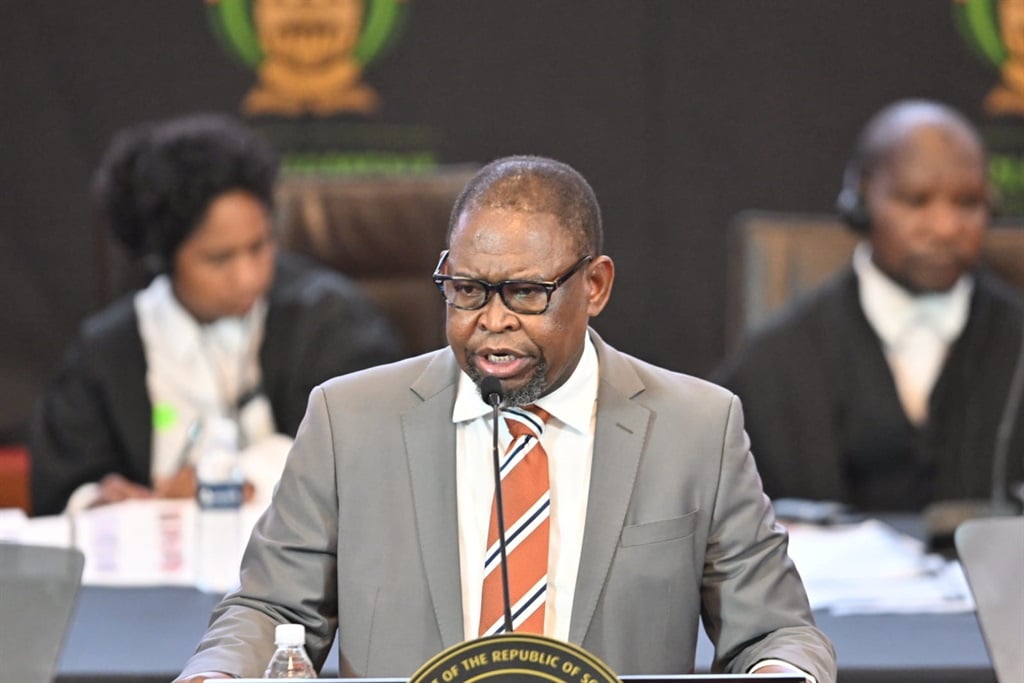
Finance Minister Enoch Godongwana said structural reforms must kick in soon as the fiscus could not rely on better-than-expected revenue collections windfalls from developments like the commodity cycle for much longer.
Godongwana was addressing a virtual panel discussion on his Wednesday Medium-term Budget Policy Statement (MTBPS) on Thursday evening. The panel discussion was organised by Daily Maverick.
The medium-term budget used some of the higher-than-expected tax income to reduce government borrowing. National Treasury expects that by the end of 2023/24, government revenue will exceed its spending aside from interest payments for the first time in 15 years.
The budget also included R5.8 billion to Transnet for infrastructure repairs and freight rail locomotives maintenance, support for Eskom's R400 billion debt, R23.7 billion for Sanral, and R3.4 billion for Denel.
Journalist and webinar moderator Ray Mahlaka asked Godongwana if Treasury was counting on the commodities cycle to continue contributing to high revenues. Godongwana said in the current fraught economic environment of the world, nothing was guaranteed.
"It's an interesting question because if you look at what we are saying in the MTBPS, revenue has largely been broad-based in the sense that it's not only mining. We talk about the finance sector and manufacturing growth.
"We are not making an assumption that that revenue growth will be with us for long and it is going to decline. If we are going to make that assumption, we have to say how we position expenditure and spend revenue such that we still maintain our path of fiscal prudence," said Godongwana.
Godongwana said the performance of the manufacturing sector surprised many from a revenue perspective, but that the National Treasury was still operating from the assumption that this was temporary. He said if there was a gloomy global economic outlook, it will affect South Africa.
"If Eskom, for instance, were to improve plant performance... that would change the game because then we will have, to some extent, some reliable electricity supply," Godongwana said.
Godongwana said 40% of South Africa's economic underperformance could be blamed on unreliable electricity supply. He said Eskom and Transnet were getting assistance from the medium-term budget because they were central parts of Operation Vulindlela - the joint delivery unit of the Presidency and National Treasury – which seeks to drive structural economic reforms.
"I was telling the joint committees today. They were complaining about those who can't submit documents to Parliament. I told them they expect too much of the Treasury. They have many other entities and departments that report to them.
"Largely, Transnet's challenges have been operational. What attracted our attention to Transnet was the financial issues, starting from June. We started digging on a number of issues. We said okay, the operational issues are turning into a financial crisis," he said.
Economist Gina Schoeman said South Africa needed to provide support to Transnet so that the economy could make the most of the commodity cycle and manufacturing upswings.
"We are going to expose where we have improved... [and where] progress has taken the economy and where it hasn't. This is what commodity cycles do to South Africa. As soon as they fall away, we get a true sense of what the economy really looks like," said Schoeman.
Regarding concerns that Transnet was on the cusp of becoming the next Eskom, Schoeman said: "Everyone calls Transnet the new Eskom. I say not so fast."
"We saw the true colours of Eskom in 2008 and it took a long time to put plans in plans to fix it. You can't tell me that there is no time for us to put plans in place to fix Transnet if we act with urgency," Schoeman said.
Citadel chief investment officer and director George Herman said: "I think the minister did the right thing by acknowledging that global positions are tightening. We saw an example in the UK recently where their budget announced some unfunded functions and the markets revolted against that".
